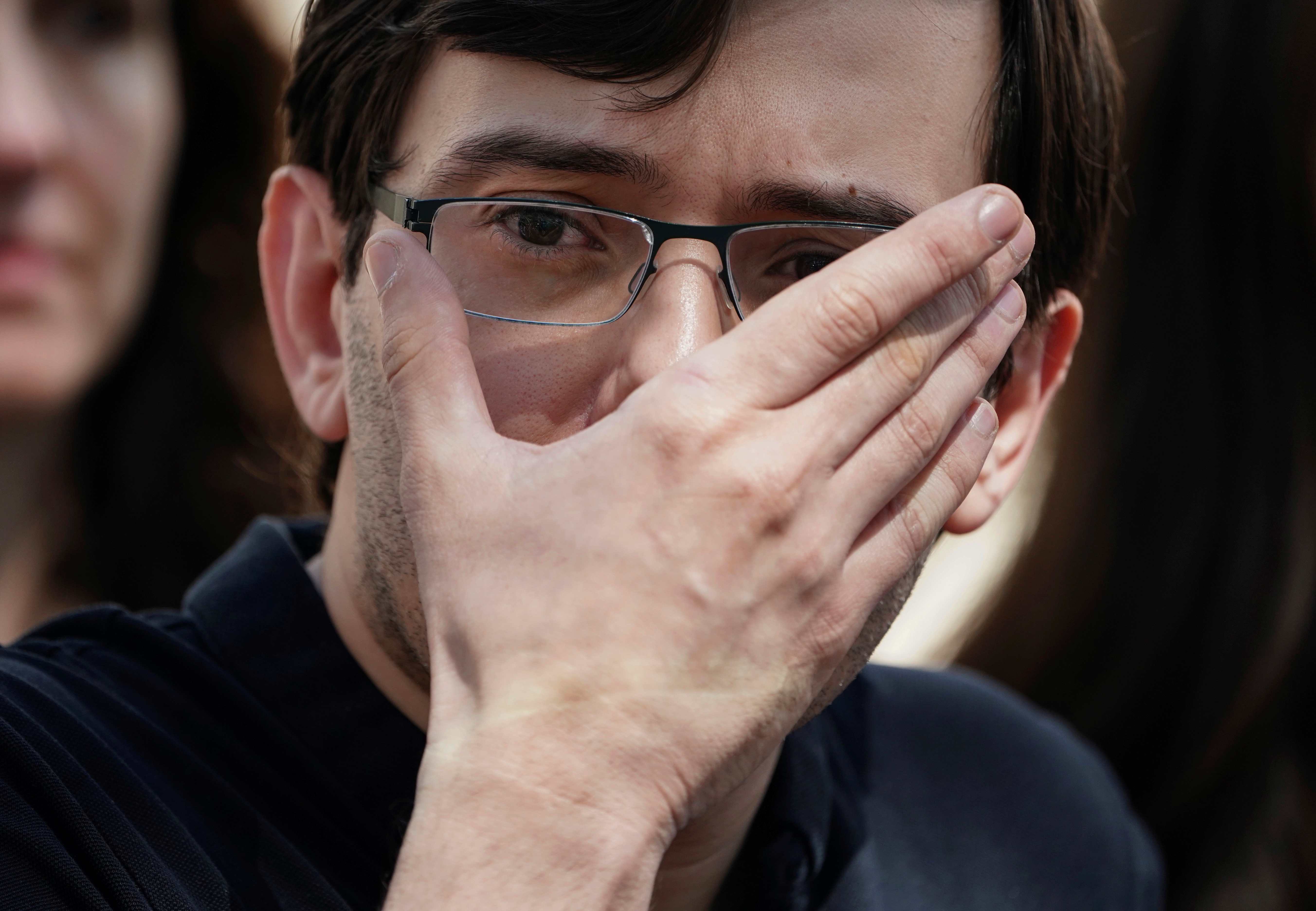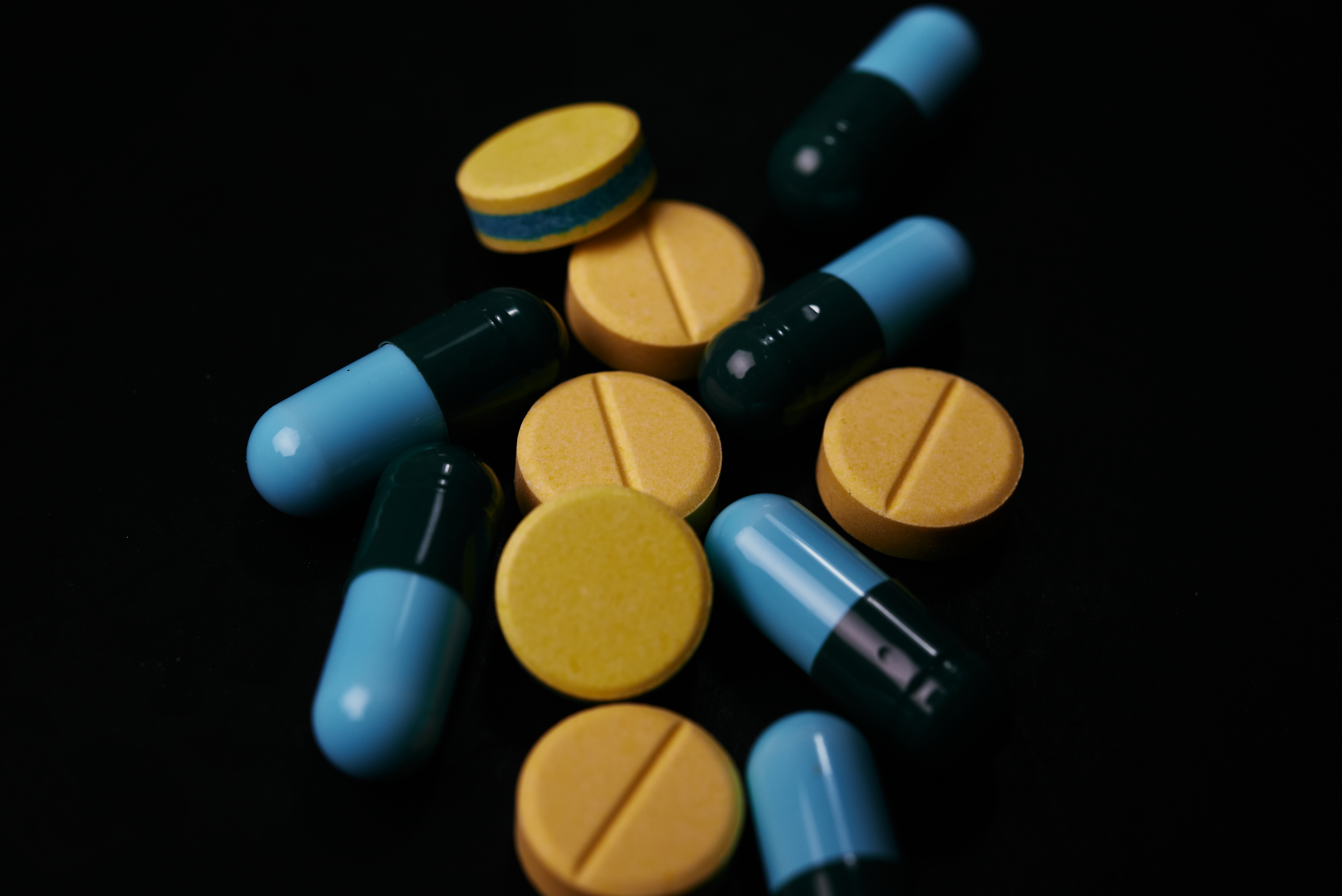Pharmanomics: Big Pharma's war on global health
Big pharmaceutical companies position themselves as saviours of humanity - but in truth, they siphon billions from richer governments while abandoning people in poorer countries. Here's how we can change course.
Nearly eighteen months into the Covid-19 pandemic, Albert Bourla, the chief of one of world’s biggest pharmaceutical corporations, Pfizer, sat down with a journalist in an upmarket Greek restaurant in New York. Bourla had, by anyone’s estimations, enjoyed a successful year. And in August 2020, over a $324 lunch for two, he talked to the Financial Times about the health crisis which had made his company a household name.
Bourla sat on the most lucrative medicine in the history of the pharmaceutical industry, expected to bring in $36 billion in a single year. Pfizer was also working on another blockbuster – an antiviral treatment – which would, if it came off, net billions more dollars a year.
But sales were not the only consideration. Just before Covid-19 struck, the sector, known as ‘big pharma’ by its critics, was regarded as the least trusted industry in the US, with Pfizer regarded as the least trustworthy of the big pharma firms. The pandemic was an opportunity not simply to profit, but to improve this tarnished reputation.
And it seemed to be working. As Bourla tucked into a $32 Greek Salad, he was interrupted by the restaurant’s head of marketing, who gushed “It is due to you that we can be open.” There were stories of revellers toasting Pfizer in Tel Aviv and cocktails named after his company’s vaccine in London. The pandemic, Bourla said, had given pharmaceutical companies like the one he ran a “stage” to prove their detractors wrong. As Bourla had told the media a month earlier, “I’m satisfied that the company is doing financially very well, but even more satisfied when I go into a restaurant and get a standing ovation.” But, he warned, “[we] should never take it for granted. It can change very quickly.”
‘IT’S NOT EVEN THEIR VACCINE’
It did change. Within a few months of Bourla’s interview, concern about the role of corporations like Pfizer in perpetuating deep levels of global vaccine inequality was becoming increasingly mainstream. While rich countries had vaccinated most of their populations, many countries in Africa, Asia and Latin America had barely been able to start. By November 2021, the number of booster shots being administered in rich nations outstripped the total number of vaccines administered in low income countries by nearly two to one.
All western companies involved in vaccine production had failed to some extent. But particular anger was reserved for the producers of new generation mRNA vaccines which were proving particularly effective at preventing hospitalisation and death. But mRNA vaccines were produced by just three companies: Pfizer and its German partner BioNTech, and Moderna.
These companies had sold their vaccines almost entirely to the richest countries in the world and they were making eye-watering amounts of money on those sales – an estimated $1,000 per second. So lucrative was Covid-19, that within just over a year of the pandemic being declared, big pharma’s vaccines had created nine new billionaires.
It started to dawn on policy makers that a small handful of for-profit corporations with no public accountability could decide how many vaccines could be made in a given year, who got to buy them and at what cost. They got to dictate, in other words, who lived and who died.
To add insult to injury, these vaccines had not, for the most part, been invented by the corporations now producing them. “It’s not even their vaccine” one former US government official bemoaned, saying the fact it had become the ‘Pfizer’ vaccine was “the biggest marketing coup in the history of American pharmaceuticals.”

Former drug company executive Martin Shkreli in 2017.
SO LITTLE RESEARCH
In the pharmaceutical world, scandals are often put down to a bad apple in a barrel of otherwise pretty good fruit. And for every negative story that emerges, we are told ‘sure, there are always a few who take advantage, but don’t throw the baby out with the bath water – without big pharma, there would be no medicines’.
But what the Covid-19 pandemic showed clearly is that, while the pharmaceutical world is certainly diverse, the problem is not individual greed. It goes deeper. Once you start to pull at this thread you discover that Pfizer, while certainly at the more unpleasant end of the spectrum, cannot simply be dismissed as a ‘one-off’. Rather, the rules and incentives by which big pharma operates has created a deeply dysfunctional industry.
Perhaps no-one represents this new industry more honestly than the ultimate bad boy of the sector, Martin Shkreli. Shkreli was a hedge fund manager, but started up a pharmaceutical company when, by his own admission, he realised there was not enough money to be made in hedge funds. His strategy for making money was simple: buy up expired drug patents for important medicines, control the supply, and hike the price.
In 2015, Shkreli became infamous when his company acquired a simple-to-make but lifesaving anti-parasitic medicine, used particularly by AIDS patients. He then jacked the price up 5,000%. True to form, when Shkreli was asked at the end of 2015, after being labelled ‘the most hated man in America’, about any regrets he might have, he replied that he should have raised the price higher. In the highly divisive world of US politics, Shkreli managed to unite Hillary Clinton, Bernie Sanders and Donald Trump in their opposition to him.
Of course, big pharma moved to distance itself from Shkreli. He was just another bad apple. Yet, for all their denunciations, Shkreli’s behaviour really was not so abnormal, except in one respect: Shkreli did not hide what he was doing behind a wall of public relations. He told a healthcare summit: “My shareholders expect me to make the most profit. That's the ugly, dirty truth…. this is a capitalist society, capitalist system and capitalist rules. My investors expect me to maximise profits. Not to minimise them or go half or go 70% but to go to 100% of the profit curve.
The pharma industry is renowned for price-gouging, for buying up the intellectual property of other people, for acquiring or shutting down competitors, for playing the financial markets, for making insignificant changes to existing drugs and pretending they’ve made something new and important, and for lobbying for an even more favourable regulatory environment.
Indeed, big pharma has almost forgotten how to make useful medicines. What often surprises people most about the industry is that the big corporations we associate with production of medicines do so little research into the medicines we need. These are not, by and large, companies that develop vital drugs and then make obscene profits off the back of them. Rather, the drug creation is done by others, often bankrolled by the public sector.
Big pharma is not alone. The way in which medicines are made says something much more profound about our economy as a whole. Medicines give us a glimpse of a deeply broken system. Wherever we look, our economy has been hollowed out, with corporations more interested in the diktats of the financial markets than focussing on what they were set up to do. Under the rubric of ‘letting the market decide’ what gets made, we have built an actual system of monopoly capitalism, with inequality so extreme and the power of big business so great, that it threatens to overwhelm what remains of our democratic rights.
Along the way, this model has fuelled, at a global level, extraordinary levels of inequality in medical access, as well as putting unbearable burdens on public health services in the global north.

POWER AND WEALTH
In the early 1990s, many at the top of the pharmaceutical industry saw that their biggest asset was not their research expertise or their manufacturing know-how. It was, instead, their intellectual property – the patents and trade secrets that gave them monopolies, allowing them to control supply, production and prices, over a wide range of medicines. This intellectual property was an incredibly profitable commodity in its own right, open to being moved around to hide profits or avoid regulation, or bought and sold on financial markets.
The key to cementing this power, then, was making this intellectual property sacrosanct. Throughout the 1980s and 90s, big pharma worked to increase these monopoly powers. Perhaps their greatest achievement was a new trade deal, known as TRIPS (the Trade-Related Aspects of Intellectual Property Rights agreement). Described by journalist Alexander Zaitchik as “a brute and profoundly undemocratic expression of concentrated corporate power”, TRIPS extended US-style patent protection to the entire world. Whereas before, countries across the global south could produce medicines far more freely, TRIPS enforced monopoly protection everywhere. And while there were exemptions, those exemptions were hard to apply in practice – as South Africa was soon to discover in its battle over HIV medicines in the 2000s.
By the early 2000s, HIV/ AIDS was having a catastrophic effect across Southern Africa, with as many as 4.5 million – or one-in-nine people – living with HIV in South Africa, and 1,700 people being infected every day. There were, by this point, life-saving drugs on the market that could suppress the virus, meaning they could halt the development of AIDS and prevent the spread of HIV. The problem was that the patents on these drugs were held by pharmaceutical corporations who got to set the price and decide who could produce the medicines.
In practice, that meant HIV medicines were priced at $10,000 per patient, rendering the drugs unaffordable to South Africa’s health service or to most individuals in the country. But the situation was not insurmountable, because fortunately the medicines did not cost anything like that much to make. By producing the medicines in the global south, it was estimated South Africa could cut the cost by 90%. And fortunately, the government was proposing legislation which would allow them to override patents, so they could have imported generic versions.
Big pharma saw things differently. Accusing South Africa of ‘piracy’, 39 firms, including some of the biggest corporations in the world, sued the South African government. Together with senior figures from the US and European governments, they pulled out all the stops to prevent South Africa passing its legislation. The corporations were ultimately forced to back down, the case a disaster for the industry’s image. But the model remained in place.
Today we have a pharmaceutical system where fortunes can be made without ever setting foot in a scientific laboratory and where far more money can be made by playing the financial markets, and exploiting access to desperately needed public knowledge, than by inventing an important new medicine.
It does not have to be like this. Indeed precisely because of the movements that arose to challenge ‘vaccine apartheid’, change is taking place. This change is currently small-scale and will need to be nurtured. But it is there, and it holds out the promise of more transformative change not only to the way medicines are produced and distributed, but to the economy as a whole. That will be vital if we want to halt climate change, build a better food system, and create a more democratic society.
It’s true that, during a major pandemic, we developed incredible medicines, in a short period of time and thanks to massive public investment. Sadly, the distribution of those medicines was doled out on the basis of power and wealth. But imagine if the drive of the pharmaceutical corporations for ever greater levels of profit was removed from the equation. Imagine if we could replace cut-throat competition and secrecy with collaboration and openness. Imagine if our research was driven solely by the desire to rid the world of disease and suffering. When combined with our technological know-how, the dedication of brilliant researchers and the trust which such a model could inspire in the population at large, imagine what we could achieve.
Nick Dearden is director of Global Justice Now.
The Lead is now on Substack.
Become a Member, and get our most groundbreaking content first. Become a Founder, and join the newsroom’s internal conversation - meet the writers, the editors and more.




